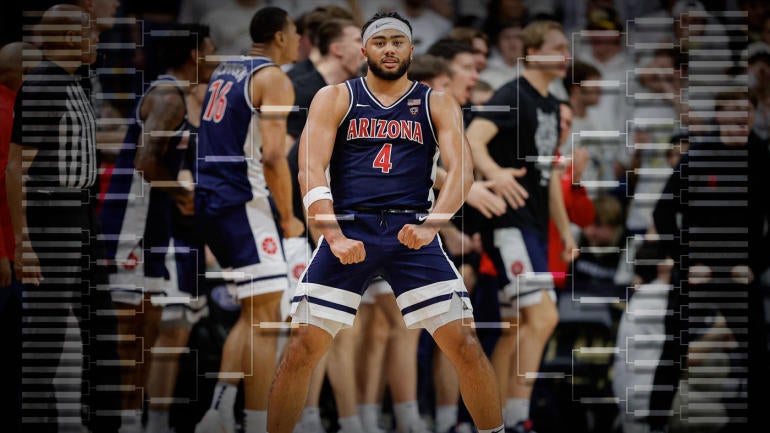
Nobody seems to want to be the fourth No. 1 seed. Tennessee's stay on the top line of the Bracketology NCAA Tournament projected bracket was short. Arizona has moved up to the fourth overall seed after the Volunteers lost at Texas A&M on Saturday.
Also, Monday's bracket features two bid stealers. Richmond and South Florida are in first place in their respective leagues, but would not be in the bracket otherwise. New Mexico and Cincinnati are the first two teams out because of that.
Bracketology top seeds
Check out Palm's latest bracket, Bubble Watch and full field of 68 at the Bracketology hub.
Which numbers matter (and which ones don't)
I am going to give you my annual primer on the NCAA Tournament selection process. I'll go over what is considered and not considered and how important some of the data points are.
If you ask a committee member what they are looking at when selecting and seeding teams for the tournament, they often say they evaluate teams based on four questions:
- Who did you play?
- Where did you play them?
- Who did you beat?
- Who beat you?
Note that "By how much?" is not one of the questions. The selection process is results oriented, even if some of the data supporting it is not.
For example, the NCAA's own ranking system, the NET, is heavily influenced by margin of victory. However, the NET is not used to make decisions. They don't use it to pick or seed one team over another. The NET's only use is to put teams in quadrants on team sheets. So, the NET rankings of a team's opponents are much more important than its own ranking.
Another ranking that is heavily reliant on margin of victory is KenPom.com. Ken Pomeroy's rankings and other statistical analysis of teams and players is brilliant, however it isn't overly helpful in the selection and seeding process.
In fact, when the NCAA was starting to look at replacing the RPI back in 2017, Pomeroy told the NCAA people that they should not use his rankings because he is not measuring what they are trying to reward.
Despite that, his rankings along with three others are on the team sheets the committee members see with the relevant data on each team. Jeff Sagarin's used to be there also, but he retired his rankings before this season. The others are Kevin Pauga's (KPI) and the two ESPN ratings (BPI, SOR). BPI seems to fit in the margin-of-victory based category. KPI and SOR are not margin-of-victory based or, at least, not much.
None of these rankings go a long way to answering the questions above. I always say that if all you have is good metrics, you have nothing. They are on the team sheets, so I'm sure they have some value to the committee, but they do not seem to be a driving force in the process.
And like most data points on the team sheets, each committee member will have their own opinion of which ones are more valuable than others.
You will also hear a lot about records in the four quadrants and those are important, but not every Quad 1 opponent is the same. We summarize a lot when talking about quadrant records because it is easier to do it that way, but the devil is in the details. If the committee could just look at quadrant records and computer rankings, they would need a five hour selection meeting instead of a five day meeting.
There are a few completely irrelevant data points, most notably anything related to conference performance. Conference records, placement in the standings, etc. are not on the team sheets at all. When it comes to conference performance, the only thing the committee cares about is which team is the automatic qualifier.
That makes sense. With conference sizes ballooning to ridiculous numbers, teams' conference schedules widely vary in terms of strength. Conference records tell you very little about a team.
However, teams nonconference schedules can be important. For some teams, those games are the only chance to prove themselves. A poor nonconference schedule can come back to bite teams too. It is not unusual for a power conference team that played a poor nonconference schedule before muddling through their league, to get left out of the tournament. It happens almost every year.
Also, there is no concept of a number of teams a conference "deserves." There are no limits or decisions based on the perceived quality of a conference.
Finally, another irrelevant thing is a team or conference's past performance in the tournament. Teams are judged solely on what they have done this season.
Hope this helps!

























